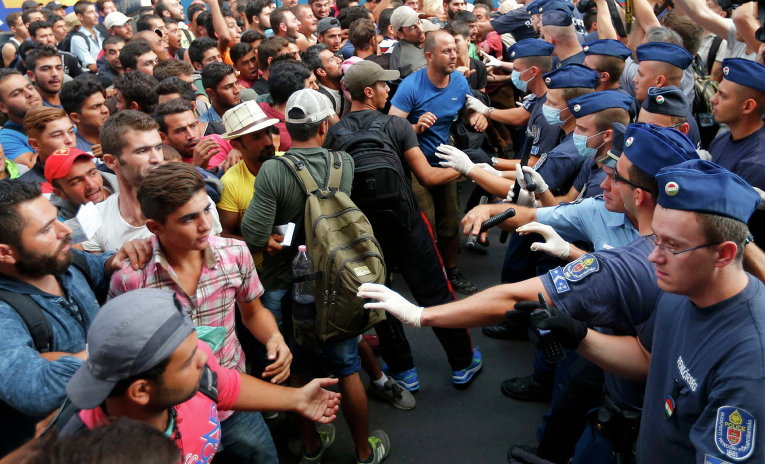Hungarian Prime Minister Viktor Orban said that the EU has no answers "to the migration crisis and domestic problems." To prevent the flow of migrants, Hungary plans to construct a second fence on its southern border with Serbia. Earlier, Turkish Foreign Minister Mevlut Cavusoglu said that Ankara will annul the refugee agreement with the European Union if Turkish citizens do not receive a visa-free regime with the EU countries by October. European experts say that due to the influx of migrants Europe will no longer be recognizable.
A member of the Presidential Council for Interethnic Relations, Vladimir Zorin, agrees with them. "Although our relationship with Europe is tense, we are on the same continent, and we are not isolated completely from the processes taking place in the EU. There are both the Internet and the economy, despite the sanctions and many other factors. Europe's recent problems cause concerns, because to a certain extent, this can touch us as well. Europe will not be the same after Brexit and the refugee crisis. Refugees are not only poor people fleeing in search of peace and prosperity, but they are people who have specific goals, and it is important here to understand who is who."

According to Zorin, the attitude to labor migrants and refugees is fundamentally different in Russia and Europe: "We are acting in line with international standards with regard to refugees and internally displaced persons, but we have no goal to provide a labor migrant or a refugee with money or a comfortable existence. People arrive here to work and earn money, even if we are talking about refugees. They are determined to find a job. I'm talking about our people who arrive here. But they arrive in Europe to get free money. Europe has demonstrated that, despite all the statements about political correctness and tolerance, the principle of 'save yourself' has prevailed. The Council of Europe has determined that 23 countries of 28 countries have to accept refugees. According to recently published data for this year, a little more than four thousand people were accepted out of the planned 40 thousand. That is, there is a sabotage of the Council of Europe's decisions, and there are practically no mechanisms aimed at regulating these processes."
At the same time, the expert expressed hope that Europe will find a way out of this situation, but this will make it think seriously about the principles and objectives of the European community. Zorin also noted that the Eastern European countries provoke the rejection of immigrants: "Their socio-economic situation is not very good, and they would also like to be integrated into Europe, but only receiving and giving nothing in return. I think that this will lead to a certain reassessment of values."






